Ants, highly organized social insects, require targeted control due to their distinct roles and preferred habitats. Homeowners should look for signs like trails, eggs, odors, or spoilage and take preventive measures by cleaning, sealing entry points, and storing food properly. Ant infestations can be managed through natural solutions (e.g., essential oils, boric acid) or chemical treatments (ant baits, liquid insecticides), with severe cases needing professional ant control services employing specialized knowledge and tools for long-lasting solutions.
Ant infestations can be a persistent and frustrating problem, but understanding these tiny invaders is the first step towards effective ant control. From identifying their behaviors and habitats to recognizing signs of an infestation, this comprehensive guide covers it all. Learn about prevention techniques, explore natural and chemical solutions, and discover targeted treatments for specific ant types. We also provide DIY remedies and discuss when professional ant control services are essential for successful ant management.
Understanding Ant Behaviors and Habitat
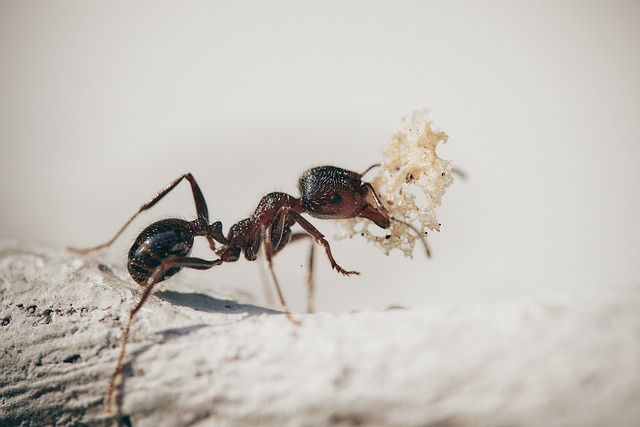
Ants are highly organized social insects with distinct roles within their colonies, which can range from a few dozen to millions of individuals. Understanding these behaviors and where they live is crucial for effective ant control. Worker ants scout for food, communicate with pheromones, and tend to their queen, who is responsible for laying eggs that will grow into new workers, soldiers, or reproductive ants. Knowing this structured behavior helps in identifying the source of an infestation and pinpointing where to apply treatments for better ant control.
Ants build nests in a variety of habitats, from open fields to cracks in walls and floors inside homes. They prefer areas with easy access to food and water, as well as protection from predators. Common places for ant infestations include kitchens, bathrooms, and other spaces where food is stored or spilled. Identifying these habitats allows homeowners to take proactive measures to seal entry points, clean thoroughly, and use targeted treatments to disrupt the ants’ life cycle, providing long-lasting ant control.
Identifying Signs of an Ant Infestation
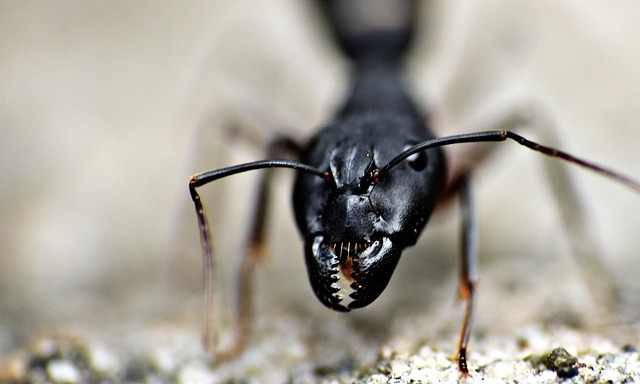
Ant infestations can often go unnoticed until they’ve established a strong presence. However, there are several signs that indicate their presence. Keep an eye out for small trails of ants scurrying along floors or walls, especially near food sources. You might also notice discarded ant eggs or dead ants, which can be identified by their distinct oval shapes and various colors.
Other telltale signs include a sweet or tangy odor in the air, which often emanates from ant nests. If you observe ants entering and exiting small crevices or holes around your home, especially in kitchens and bathrooms, it’s a strong indicator of an infestation. Regularly inspect your food storage areas for any evidence of spoilage or disturbance, as ants are attracted to various foods, including processed items, sugars, and fats.
Prevention Techniques for Effective Ant Control
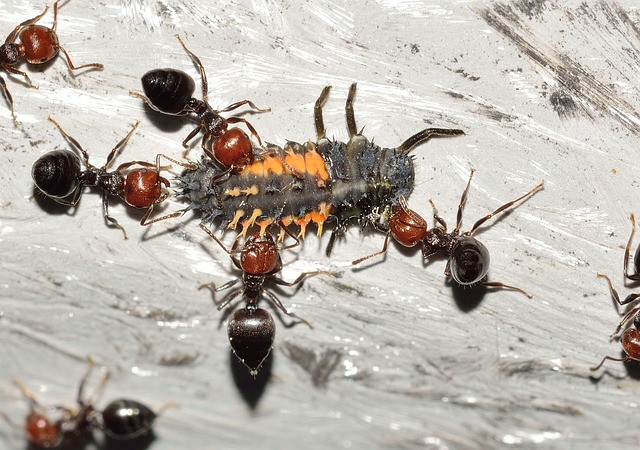
Preventing ant infestations is key to maintaining a pest-free environment. Regular cleaning and sanitizing are fundamental; ants are attracted to food remnants, so keeping surfaces clean and storing food in airtight containers can significantly deter them. Additionally, sealing entry points such as cracks and gaps around doors and windows prevents ants from finding their way indoors. Using natural repellents like lemon juice, cinnamon, or mint oil can also help keep these pests at bay.
For more robust protection, consider maintaining a healthy lawn and trimming trees and shrubs to reduce harborage sites. As ants often follow pheromone trails left by others, removing leaf litter and debris disrupts this navigation system. Moreover, regular inspections are crucial; identifying ant activity early allows for swift action, preventing small issues from becoming large-scale infestations that require professional intervention for effective ant control.
Natural and Chemical Solutions to Eliminate Ants
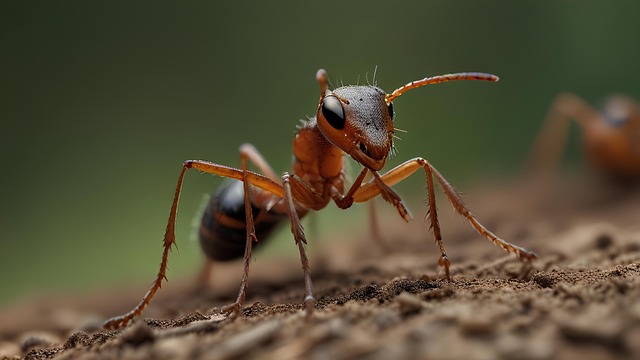
When it comes to ant infestation, there are two primary approaches for effective ant control: natural solutions and chemical treatments. Natural methods offer a more eco-friendly approach, leveraging ingredients found in your kitchen or backyard to eliminate ants. Essential oils like citronella, peppermint, and tea tree oil have been proven effective due to their strong odour that disrupts the ant’s scent trail communication. Boric acid, when mixed with a sticky substance, can be used as a dusting powder to kill ants on contact. Additionally, using vinegar or baking soda mixtures can act as natural repellents by altering the pH levels in ant trails.
Chemical solutions, while faster and often more potent, should be considered with caution due to their potential environmental and health impacts. Ant baits are popular chemical treatments that lure ants with a substance they carry back to their colony, eventually eliminating it from within. Liquid insecticides, when applied correctly, can target specific ant trails, but must be handled carefully to avoid contamination. For severe infestations, professional pest control services often employ powerful chemicals designed for robust ant control, ensuring the problem is swiftly and effectively resolved.
Targeted Treatments for Specific Ant Types
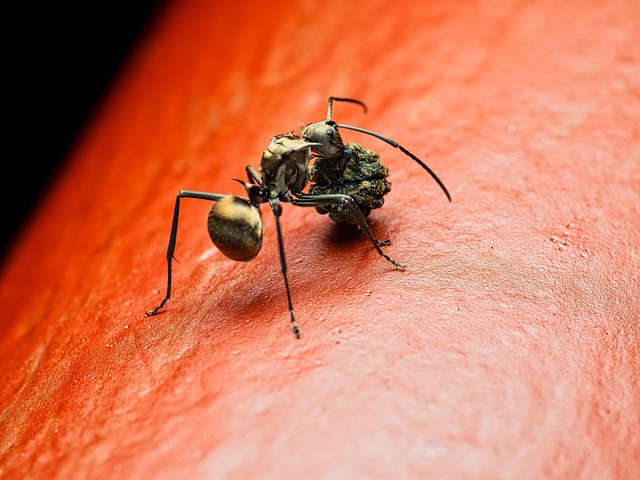
When dealing with an ant infestation, it’s crucial to understand that not all ants are created equal. Different species require distinct approaches for effective ant control. For example, fire ants, known for their aggressive behavior and painful stings, necessitate targeted treatments designed to disrupt their complex colony structure. On the other hand, pheromone-using ants, like carpenter ants, may demand a different strategy focused on blocking their scent trails to prevent further invasion.
Specialized pest control services often employ eco-friendly solutions tailored to specific ant types. These methods range from biological controls, such as introducing natural predators, to localized applications of non-toxic baits that target only the offending ants without harming beneficial insects or pets. By customizing treatments to match the particular ant species and their behavior patterns, professionals ensure more effective ant control while minimizing environmental impact.
DIY Ant Repellents and Home Remediies
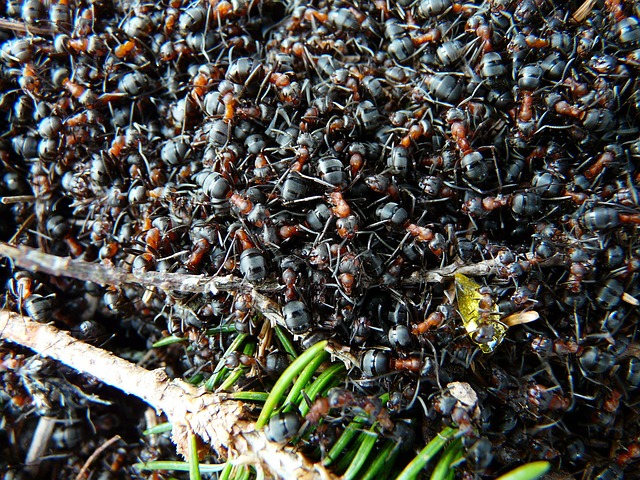
Ant infestations can be a nuisance, but there are effective DIY ant repellent solutions that offer natural and affordable alternatives to commercial products. Common household items like vinegar, lemon juice, and peppermint oil have proven to be powerful ant deterrents. Mixing equal parts white vinegar and water in a spray bottle creates an acetic acid solution that disrupts the ants’ scent trails, making it harder for them to navigate and find food sources. Lemon juice, rich in citric acid, can be applied to entry points and ant trails, creating an environment that ants find unappealing.
Essential oils, particularly peppermint oil, are highly effective ant repellents due to their strong odor. Dilute a few drops of peppermint oil in water and spray it around windowsills, doors, and other suspected entry points. You can also create a natural barrier by mixing equal parts melted coconut oil and ground cinnamon or cayenne pepper and applying the mixture to problem areas. These home remedies not only help with ant control but are safe for pets and environmentally friendly alternatives to harsh chemicals.
Professional Ant Control Services: When to Seek Help
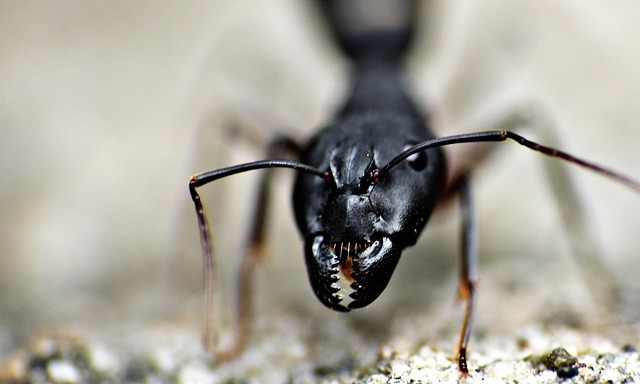
If an ant infestation has become unmanageable, it’s time to consider professional ant control services. While do-it-yourself methods can be effective for minor infestations, a severe or recurring issue often requires specialised knowledge and equipment. Professional exterminators have access to a range of treatments, including advanced technologies and eco-friendly options, that are designed to target ants without causing harm to humans or pets.
Seeking professional help is especially crucial if the infestation has spread beyond easily accessible areas, if you’ve noticed ant trails leading into your home, or if you suspect an undetected nest exists. Prompt action can prevent the problem from escalating and ensure a longer-lasting solution. These experts will identify the specific type of ants causing the issue, determine the best course of action, and provide tailored solutions to eliminate the infestation at its source.
